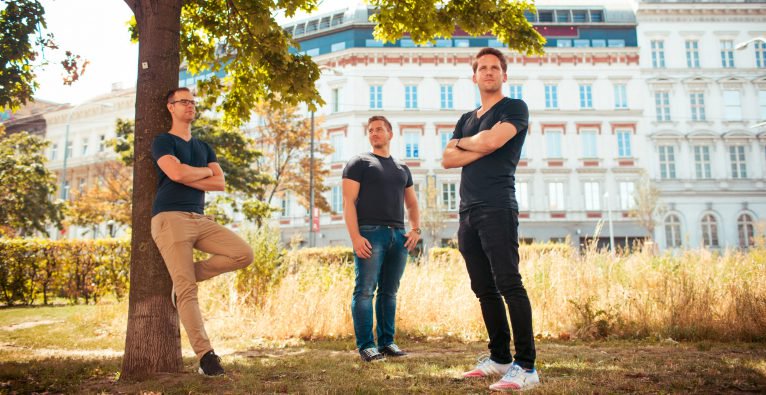Blockchain in Austria

(c) - Herosphere
The following article is translated from German into English to provide English speaking people in general, and especially HEROcoin investors, some information about the current Blockchain situation in Austria.
The Original Article was published on www.derbrutkasten.com by Paul Polterauer (CEO HEROcoin) und Bernhard Blaha (COO HEROcoin), 12th January 2018.
Blockchain: Austria is missing its biggest opportunity right now
December 4, 2017, Bangkok, Blockchain World Conference. "Gibraltar and Austria," replies James Giancotti when asked about the countries that will become hot spots for blockchain technologies in the future. Giancotti is CEO of Oddup, one of the most respected startup rating agencies. So he knows what he is talking about when he highlights Austria on this podium discussion. Whether or not you want to give blockchain technologies the same potential as the Internet, you can not deny a certain benefit in a technology that prevents forgery and uniqueness on the Internet. But it also needs the right blockchain policy.
"Everything happens in Vienna 50 years later"
If one's own country already has laurels in Asia for its openness regarding ICOs in particular and Blockchain in general, then one hears as a trained Austrian first: Gustav Mahler's statement "If the world should perish, I move to Vienna, because everything happens fifty years later "is often seen as a humorous treatment of the notorious slowness of Austrian politics. But it is also a painful reminder of the many opportunities that are awarded in Austria year after year.
Legally not only "somehow anyway legally"
With HEROcoin, Austria has one of the first ICOs in its pocket, which legally should not only be "somehow legally", but rather the team behind it took an awful lot of time and money into its hands to provide opinions on the current legal situation and its applicability to raise ICOs. From the results of these surveys, several models were developed for implementation, of which ultimately the most legally secure was chosen. Replies from authorities or policy-makers to the desired implementation remained relatively sparse throughout the period of implementation. Only the final "Okay" was confessed after the successful first ICO.
The blockchain is ready for mass adaptation
The potential in politics seems to have been recognized only by former Minister of Economic Affairs Harald Mahrer, who has been campaigning intensively for months for a clear and clean regulation of blockchain technologies in Austria and a blockchain policy of his own. The technology is ready for mass adaptation and the companies behind it rely on legal security.
It needs regulation
Even more important, however, is regulation for the end user: as with so many new technologies, scammers have not been long in the blockchain either. Even in other Austrian ICOs, irregularities have already occurred. In contrast to the banking industry, one of the biggest advantages and disadvantages of blockchain is that no one but the user has power over their own assets. No bank that would reverse transfers to fraud accounts or even warn them in advance.
Four points for the blockchain policy
Why the state did not start work here, simply to work for consumer protection on regulations, probably knows only the policy - if at all. The trained Austrian now attacks again on the head and fears a forced corset, which does not contribute to security, but only to the mass exodus of blockchain companies. Cope. Therefore, dear politicians, we have written a guide for you here, with which you can make Austria ready with a good blockchain policy for the future:
Speed
If a bill is submitted in 5 years, it is as if 2018 state institutions have not yet received SSL encryption (yes, the ORF is meant). Switzerland, Gibraltar and Malta are not sleeping. Estonia, Liechtenstein and the Netherlands have long expressed their intention to intensively integrate the blockchain into everyday life. The Arab Emirates incorporate the blockchain into their state apparatus. Can we do something in a reasonable time?Sandboxes
Harald Mahrer has been talking for months about sandboxes for novel and unregulated technologies. Nobody wants to evade or avoid taxes here. Businesses want the state to learn from and with them.Clear announcements
If your efforts stem from legally untenable and uninterpretable gibberish, let it go right away and tell companies to pay their taxes abroad.Education
Enables people to reduce their exposure to actual facts, fears and prejudices through clean (not uncritical !!!) reporting. Every time our "quality media" about tulip crises (has anyone ever read what actually happened there?) or Bitcoin written as black market, slave, drug or tax evasion currency, it is foreseeable that the author did not make the slightest effort has to conduct actual research on the subject. This must be counteracted by education.
Gibraltar does not wait too
If Austria creates the right conditions for a good blockchain policy, blockchain companies come by themselves. The regulatory conditions in other countries are unfavorable to nonexistent. That the technology has potential is not disputable. Of course, Austria can wait and see what the others will do. Only if this is an advantage for the business location may well be questioned. Gibraltar does not wait too.

Hello, interesting post! Did you ever heard about Hashgraph before? The newest and fastest technology which will replace blockchain very soon.
Interested?
Here is my last post about it:
https://steemit.com/hashgraph/@zanoni/hashgraph-our-future-instead-of-blockchain-a-video-collection-and-more-info
Best regard, beste Gruesse
Tom
Thanks for your response, unfortunately I can't follow your provided links because I don't like self promotion on other posts ;-)
I'm sorry but that has nothing to do with self promotion, I'm not begging for upvotes, but wanted to possibly give an impetus to a discussion and an exchange of views.
regards
Tom